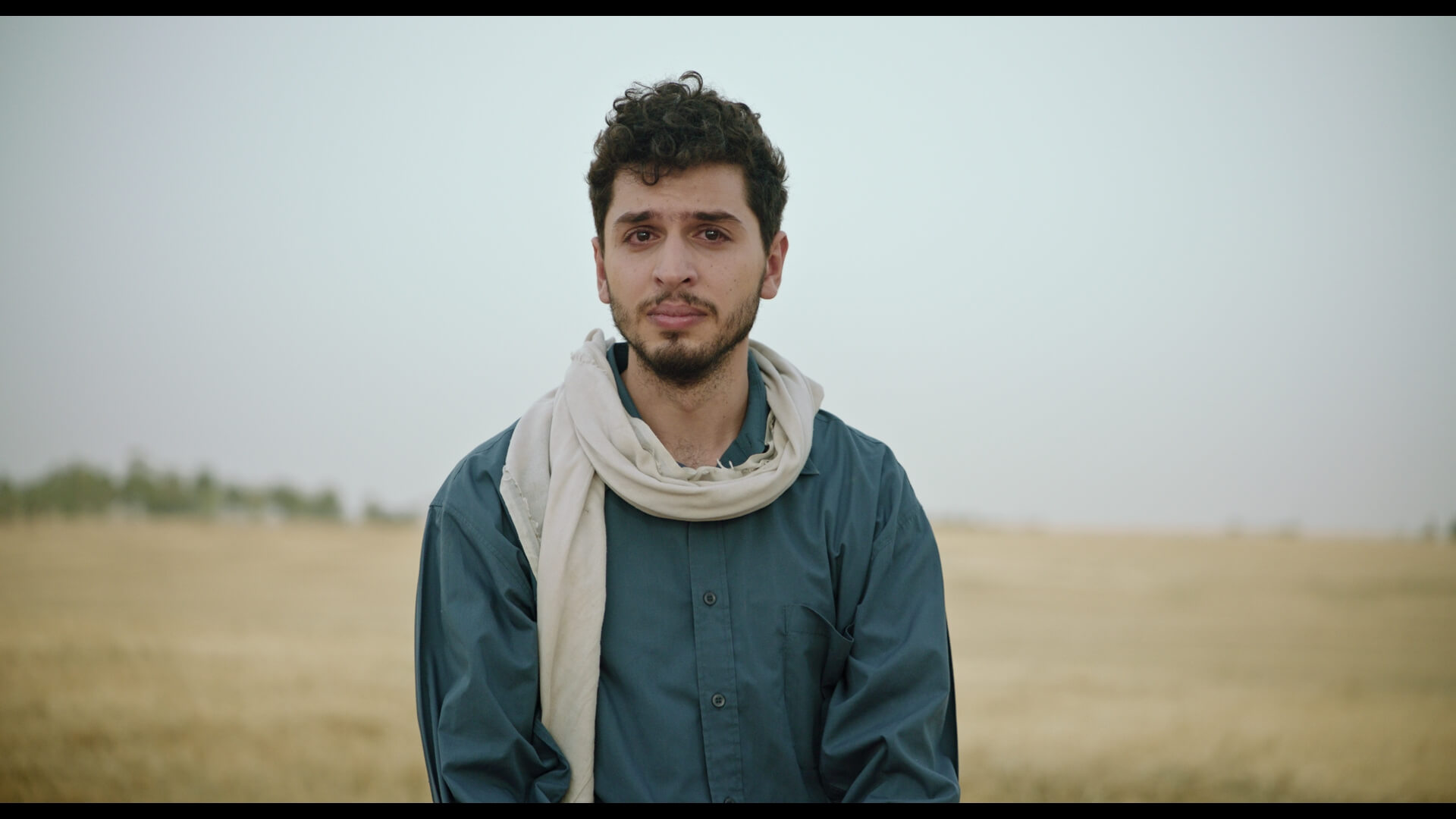‘Eid,’ the first Israeli feature directed by a Bedouin, is a heartfelt portrait of an artist
Yousef Abo Madegem’s film is an intimate glimpse at an oft-overlooked segment of Israel

Shadi Mar’i in Eid. Courtesy of The Other Israel Film Festival
By day, Eid works on a kibbutz, laying bricks and waiting for cement to set. At home, he escapes on Skype, making calls to his beloved in Paris, a married writer and actress, and dreams of one day joining her and producing a play he’s writing. But when his sister gets engaged, he is compelled to marry her fiancé’s sister in a Badal, or exchange, marriage.
Eid, by Yousef Abo Madegem, believed to be the first Israeli Bedouin to direct a feature film, tracks its title character — marvelously played by Shadi Mar’i — as he suffers the whips and scorns of tradition in the face of his own ambition.
Hamlet, indeed, seems like a spiritual basis. Eid is trapped in the expectations of his little life, escaping by rehearsing lyrical monologues responding to sexual abuse he suffered as a child. When he takes a tentative step toward freedom, the irresolution of his lover, waiting at a literal threshold, stops his momentum. (It’s very “now I might do it pat.”)
At its core, the story, written by Yuval Aharoni, director of 2017’s Heritage, is a study of a community rarely seen in Israeli film, that of Bedouin citizens of Israel who rely on Jewish employers, often suffering exploitation at their hands.
What is refreshing about the film, which takes place in the majority Bedouin city of Rahat, is its intimacy and scale. It is not a definitive picture of how the approximately 200,000 Bedouins live, but one man’s story, in which discrimination is largely incidental. (Madegem based Eid’s story on a friend of his.)
Eid is a character of pure potential, fluent in Hebrew, determined to make a life in the theater, but stifled by his demanding father and his duty to a wife he didn’t choose. His bride, played by Angham Khalil, has her own moment to consider her fate, as her mother and mother-in-law slowly unwrap her wedding hijab.
In an interview with The Jerusalem Post, Madegem said he made the film in part to discuss sexual violence against boys and begin a conversation within his community. But the film has universal appeal, and its light touch is impressive for a debut tackling heavy subject matter.
As Eid works through his play, sometimes shouting its lines at his tormenters in the kibbutz, he pokes fun at a suggestion: that it must conclude in a confrontation.
“We’re Bedouins,” he quips. “All our stories end in a confrontation.”
They don’t all have to. And, as Eid itself is proof, sometimes the best stories don’t.
The film Eid is having its New York debut at the Other Israel Film Festival at the Marlene Meyerson JCC in New York City on Thursday, Nov. 11, followed by a Q&A with director Yousef Abo Madegem.

















